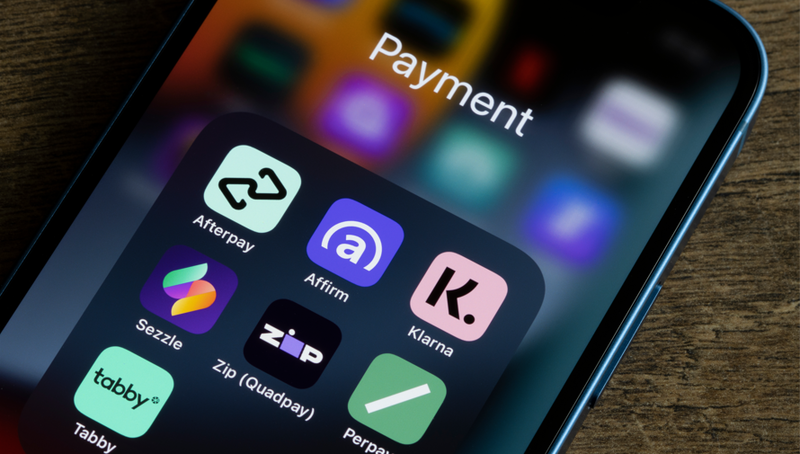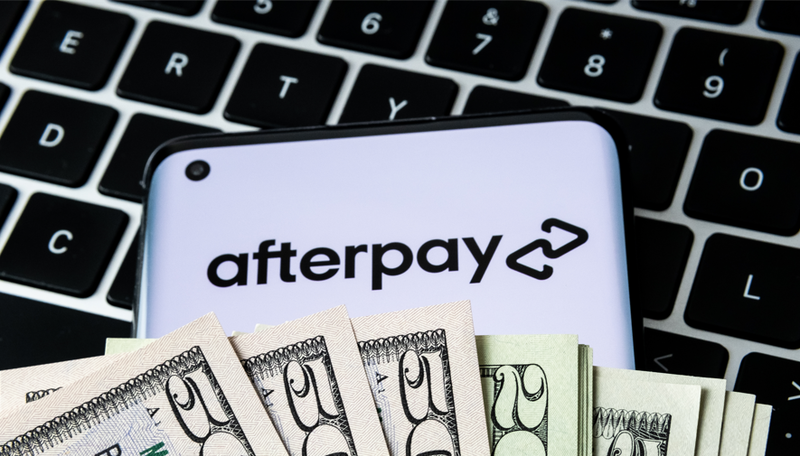products
27 Buy-Now-Pay-Later companies you need to know about
The buy-now-pay-later (BNPL) industry is booming, but keeping abreast of all the players in the industry is far from easy, writes Eric Johansson

And keeping track of the growing number of BNPL players is not getting any easier.Thanks to Covid-19, online shopping has grown in popularity and, as a result, so has the BNPL space.
And keeping track of the growing number of BNPL players is not getting any easier.Thanks to Covid-19, online shopping has grown in popularity and, as a result, so has the BNPL space.
The BNPL sector is expected to keep growing to be worth $166bn by 2023, according to GlobalData’s thematic research. Looking further ahead, it could even reach a valuation of $3.98tn by 2030, according to Allied Market Research. In other words: it’s time to start taking BNPL businesses more seriously.
“This increase in usage of BNPL payment methods has put providers in a prime position to be considered as much more than a feature, but a business model that the financial ecosystem needs to take seriously and consider how they implement or work cohesively alongside,” Al Lukies, founder and CEO of banking software company Pollinate, tells EPI.
Despite most of the companies in this sector not making a profit, it’s clear that instalments services is a multi-billion industry. No wonder then that the sector is growing crowded.
Not only are BNPL companies like Swedish quadradecacorn Klarna making headlines, but bigger players like PayPal, Square and, as rumour has it, even Apple are muscling into the sector as well.
So, keeping track of all the different companies in the sector is no mean feat.
Addi
Addi is one of Latin America’s newest BNPL providers. Launched in 2018, the Bogota-based business secured $75m in a Series B funding round in September 2021.
Greycroft led the round. While Addi didn’t reveal its valuation, it will use the money to fuel expansion plans in Brazil, Colombia and Mexico. It will face stiff competition from the likes of Mexican rival Nelo and other fintech companies peddling their own instalment solutions in the region.
Affirm
Affirm is a San Francisco-headquartered company. It was founded in 2012 by PayPal’s first CTO and founder Max Levchin together with a small group of fellow co-founders. Affirm is available in the US and all US territories, with a few exceptions.
The company went through an initial public offering (IPO) in January 2021. Having inked a partnership with Amazon in August, Affirm delivered a strong fourth quarter for the financial year. Despite announcing a jump in quarterly revenues to $261.8m, Affirm said it was not expecting to make a profit in 2022. Nevertheless, the quarterly result saw Affirm’s shares skyrocket and, at the time of writing, it is trading on the Nasdaq with a $28.9bn market cap.
Afterpay
If there is one big rivalry of note in the BNPL space, it’s that between Klarna and Afterpay. Soon after Klarna entered Australia, Afterpay’s home market, in 2020, the two companies’ CEOs engaged in a very public spat. They essentially accused each other of taking advantage of merchants. There have been few signs that the rivalry has improved since.
Launched in 2014, Afterpay has since expanded to offer instalment services in the United States, New Zealand and the United Kingdom, where it trades under the ClearPay brand. In August, payment processing company Square announced that it had reached a deal to buy Afterpay for $29bn, seemingly pushing the sector towards further consolidation.

Apple
Apple may make most of its profits from smartphones, but the iPhone maker has also established Apple Pay as a solid revenue stream over the years. Now it seems as if the iPhone maker may add BNPL services to its fintech solution. In July, several media reports suggested that the Cupertino-headquartered tech giant could soon launch its own instalment solution.
It had reportedly explored the idea together with Goldman Sachs. While there hasn’t been much movement on its own solution since, in August Apple announced a new deal with Affirm. The partnership would see them bring a joint BNPL solution to Canada.
Behalf
New York and Ra’anana-based Behalf was founded in 2011. Unlike the majority of companies on this list, Behalf isn’t focused on consumers and online shoppers. Instead, it’s carved out a niche for itself in the market by providing instalment solutions for businesses in the US.
The B2B BNPL business has so far raised a total of $462m from investors like Visa. Its most recent round saw it cash in $19m in venture capital and $100m in debt financing, according to GlobalData.
Biller
Biller is one of the newest entries into the BNPL space. The startup was launched in 2021 by former Mollie and Klarna executives. Just like Behalf, Biller is a B2B BNPL provider. Its solution is designed to help smaller firms solve purchasing issues around risk and to boost their cash flow. The Biller solution is built in partnership with Slimmer AI, a European B2B venture studio. The company is headquartered in Amsterdam.
Commonwealth Bank of Australia
Commonwealth Bank of Australia (CBA) is one of Oz’s biggest banks. So when it announced in August that it would enter the BNPL market, the news turned a few heads. The lender’s new BNPL platform is dubbed StepPay. It will offer eligible customers to split payments into four fortnightly instalments for transactions higher than A$100 ($71.1). As of the announcement, 86,000 customers had preregistered for the service.
humm by Flexifi
humm by Flexifi is a subsidiary of Australia-listed consumer finance company Hummgroup, which was founded in 1988. Since its launch, humm has grown popular in Australia, where it claims to be the third biggest BNPL provider after Afterpay and Klarna. It has also launched its services in New Zealand, Ireland and the UK. It targets customers making larger expenditures of up to A$30,000, enabling customers up to 24 months to pay off the purchase.
Klarna
Founded in 2005 by a group of Stockholm School of Economics students, Klarna has clawed its way to the top of the BNPL industry. Klarna raised a $639m SoftBank-led investment round in June to strengthen its position in the market. The raise saw it achieve a $45.6bn valuation, making it Europe’s most highly valued private tech company.
To date, Klarna is available in several European countries, North America, Asia and Australia. While rumours about an IPO have been circulating for years, the Swedish BNPL powerhouse hasn’t made any plans public.

Kredivo
Indonesian BNPL player Kredivo was founded in 2016. It has raised $310m in total over the years, most recently through a $100m debt facility from Victory Park Capital in June. Boasting that it has almost four million customers, Kredivo is now seemingly on the path to become the next BNPL company to go public.
Contrary to several other players on this list that floated via IPOs, Kredivo announced in August that it planned to debut via a special-purpose acquisition company (SPAC) deal with VPC Impact Acquisition Holdings II. The SPAC is sponsored by Victory Park Capital. Kredivo also has plans to expand into Vietnam via a joint venture with family investment office Phoenix Holding.
Laybuy
Laybuy was founded by husband-and-wife team Gary and Robyn Rohloff in 2016. The New Zealand-headquartered company has since expanded to the UK and Australia, where it listed on the stock market in September 2020. It is currently trading at a A$127m market cap.
While the Rohloffs started with global domination plans, Laybuy is yet to fully conquer the UK market. In May, the company raised $27m to that end.
“There will be growth beyond the UK but for now all the focus is the UK,” Gary Rohloff recently told EPI.
A big part of its strategy is the recent launch of its virtual card that enables customers to skirt the cumbersome tick-a-BNPL-solution-at-the-checkout routine and immediately get the full benefit of Laybuy’s pay-in-six instalments.
Limepay
Limepay is another Australian BNPL company to be aware of. Founded in 2016, Limepay offers what it describes as the nation’s only white label BNPL solution. What means is that it allows merchants to slap their own branding on the solution in their shops. So far it has raised $27m in total. While it was planning to go public in 2021, The Age reported in May that those plans could’ve been delayed due to the departure of one of the co-founders and investors growing weary of BNPL providers trying to replicate the success of Afterpay.
Lunar Bank
Lunar Bank is a Danish neobank. Just like other digital lenders like Chime, Revolut and N26, it has so far made its winnings by providing traditional banking services via its app. However, on the back of its $47.2m Series C funding round in October 2020 Lunar announced plans to launch a BNPL solution of its own. It stayed true to that promise by launching the feature Pay Later in December. While Lunar is certainly not one of the biggest players in the sector, its foray into the BNPL space highlights how many companies recognise the lucrative opportunities of the market.
Monzo
2020 was not a great year for Monzo. The London-headquartered challenger bank struggled during the pandemic. In June, it raised a £60m down round that cut its valuation from £2bn to £1.24bn. Some even speculated that fintech may go bust. The neobank later added new fees and announced a new premium offering to cover its losses. And then on 15 September, Monzo announced that it would target the BNPL sector with its Monzo Flex product offering.
Monzo Flex can be used for online and in-person transactions of more than £30 in value. Specifically, Monzo Flex will allow users to repay what they owe in three instalments. In addition, customers can opt to repay in six and 12 instalments, with interest levied at 19% APR.
Of course, not everyone is optimistic about Monzo’s chances to steal market shares from bigger and more established players in the sector.
“It will be difficult for the bank to take a significant slice of business from the likes of Klarna or PayPal,” Payl8r’s managing director Samantha Palmer said.
Mox
Hong Kong-based neobank Mox launched its own BNPL service this summer for its Mox Credit customers. Just like with similar offers, Mox’s “Spilt purchase” feature would enable users to pay off payments in smaller instalments.
Nelo
Nelo was founded in 2019. The Mexico City-headquartered startup is the latest company muscling itself into the booming Latin American fintech scene. But unlike Brazilian digital lender Nubank or Uruguayan payments processing provider dLocal, Nelo is doing it by joining the BNPL brigade. It is hoping to get the jump on rival firms by being a first-mover in the region. The startup secured a $3m seed funding round to that end in April 2021. Nelo has already signed deals with 45 merchants and has over 150,000 users on its books.
OpenPay
OpenPay is yet another Australian BNPL company. The Melbourne-headquartered startup was founded in 2013. It has carved out a niche for itself by focusing on cash flow management of larger purchases between A$40 and A$20,000 with plans ranging from two to 24 months. It other words; the service is similarly to that offered by humm by Flexifi. Following an abysmal IPO in 2019, OpenPay recovered some of its earnings along the online shopping boom of 2020. It’s currently trading at a $142m market cap.
Payl8r
Founded in 2014, Manchester-headquartered Payl8r is arguably the oldest BNPL provider in the UK. Despite its age, it has yet to become a unicorn. That may change soon. Payl8r raised a £40m debt facility from Conister Bank this summer with the aim to pass the important $1bn mark within the next five years. It’s going to do so by tapping into younger customers’ cravings for new lines of credits.
“We are the opposite of banks, we want to help millennials and we do so ethically and responsibly,” Palmer said. “In effect, we’re spearheading the death of the credit card and are proud to provide loans that can pay for the likes of educational courses that can lead to new job opportunities.”
PayPal
PayPal is another company that has realised the opportunities in the BNPL space. The San Jose-headquartered payment processing provider has spent the past year cutting out a slice for itself in the BNPL market. In August 2020, it launched its own instalments service in the States. It has since rolled out the offering across the pond. In September 2021, PayPal turned up the heat by announcing plans to acquire Japanese Paidy for $2.7bn. The acquisition would see the $338bn company signal, just like Square’s Afterpay deal, that market leaders are now hungry for bigger chunks of a market that has previously been dominated by pure BNPL providers.
Revolut
Like PayPal, Monzo and Lunar, Revolut is not a traditional BNPL player. The UK challenger bank was founded 2015. In July 2021, it became the UK’s most valued privately owned tech company after raising a $800m funding round at a $33bn valuation. Over the years it has been busy expanding its offering with premium cards, cryptocurrency features and foreign transactions and now, the BNPL sector.
Scalapay
Italian Scalapay may be a new player in the BNPL space, but it’s already making waves. The Milan-based venture was launched in 2019. It is operating in Italy, France, Germany, Spain, Portugal, Austria, Belgium, the Netherlands and Finland. Despite its tender age, Scalapay raised a $155m Series A round in September at a $700m valuation. It is backed by investors like Tiger Global, Baleen Capital and Woodson Capital.
Sezzle
Sezzle was founded in 2016. Since then, the Minneapolis-based company has listed in Australia and is reportedly planning to follow suit in the US. Despite having the same profitability problems as almost every other company in the sector, investors have taken a shine to Sezzle. Having already expanded to the EU, Oz and Canada, the company also plans on tipping its toes into the Indian and Brazilian market.
“My aim is to go for big opportunities: low cost, low risk opportunities,” Sezzle CEO and executive chairman Charlie Youakim recently told EPI.
tabby
Founded in late 2019, tabby may be a reasonably new face to the BNPL market. However, as one of the early entries into the Middle East, the Dubai-headquartered company could still make a mark. In August this year, it secured a $50m cash injection from investors like Global Founders Capital and STV. On the back of the raise, it achieved a $300m valuation. In September, tabby was Sharia-approved in the Kingdom of Saudi Arabia. The company claims to have secured partnerships with over 3,000 global companies and SMEs.
Splitit
Splitit was founded in 2012 and has established itself as a BNPL venture separate from the pack.
While companies like Klarna and Afterpay lend the customers the full amount of a purchase at the checkout and then allow that purchase to be paid off in instalments, Splitit lets users pay with an existing credit or debit card, holding the full amount on their card and taking an instalment each month. In other words: it uses existing cards to enable shoppers to split payments. The approach enabled it to grow by 307% in 2020 to $11.6m. The company followed up its success by inking a deal for a financing facility from Goldman Sachs in January. The lender committed a investment of up to $150m for a three-year term.
Having grown in the States thanks to its partnerships with Visa, Mastercard and Stripe, Splitit now has eyes on the horizon. It plans to expand further around the globe. In June, it teamed up with Middle Eastern BNPL provider tabby. The partnership will help both companies grow in the region. Splitit is headquartered in New York and it listed on the Australian Securities Exchange in 2019. The company has an R&D centre in Israel and offices in London and Australia.
Zilch
Zilch is a BNPL startup straight out of London. Founded in 2018, the company exited out of stealth in August 2020. It differentiates itself from the likes of Klarna and Afterpay by not being reliant on signing partnerships with merchants before users can tap into its services.
“We bring the buy-now-pay-later experience directly to a client anywhere they like – online, offline, Amazon, eBay, Etsy, Not On The High Street – rather than where we’ve gone and done deals and integrations, because that for me is not the customers’ problem. That’s our problem,” Philip Belamant, founder and CEO of Zilch, recently told Verdic
The company has achieved a $500m valuation on the back of its $80m Series B round in April and is currently considering expanding into the States.
Zip
Zip is yet another Australian company making a killing on instalment payments. Launched in 2013, it has, which should be no surprise to anyone by now, listed on the Australian stock exchange. It operates in Australia, the US, the UK, New Zealand, South Africa, the Czech Republic and the United Arab Emirates. It is trading at a $3.95bn market cap.
Zebit
Founded in 2015, California-based Zebit is yet another fintech on this list having gone public in Australia. It made its debut at $1.58 per share in October, raising $35m in the process. However, the price fell by 34% on the day to $1.17. While it did enjoy a surge in March 2021, the price has fallen since. It’s currently trading at $0.8, giving it a $75.6m market cap.